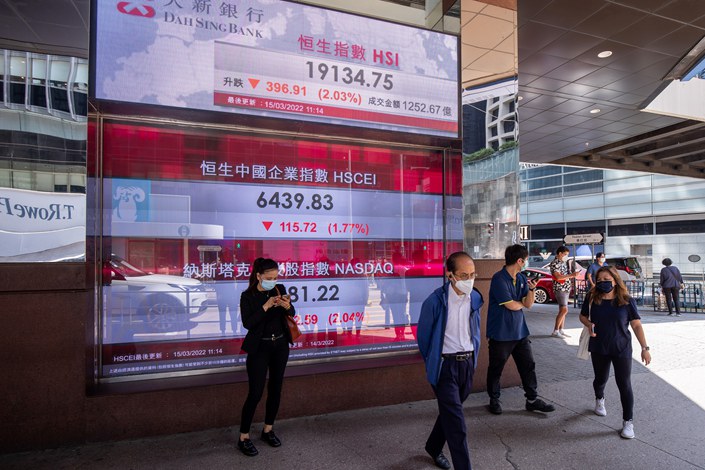
The so-called “Draghi moment” is in a sense another name for the “announcement effect” that John Hicks, a winner of the 1972 Nobel Prize in Economic Sciences, talked about. The announcement effect refers to a situation where a policy announcement itself is enough to change people’s minds and cause an immediate shift in expectations, even though no concrete measures are in place, because people believe the policy will make a difference.
Mario Draghi, described by Nobel laureate Paul Krugman as arguably “the greatest central banker of modern times,” is the current prime minister of Italy and former president of the European Central Bank (ECB). When he took office as president of the ECB in November 2011, Europe was mired in a debt crisis and the eurozone was on the verge of collapse. In July 2012, when the whole world was pessimistic about the survival of the eurozone, Draghi declared that the ECB is ready to do “whatever it takes” to preserve the euro. This had a profound impact on boosting market confidence and thus saved the euro. The “whatever it takes” catchphrase became famous along with Draghi himself, and the moment that instantly changed the confidence of the market became known as the “Draghi moment.”
A Chinese version of the “Draghi moment” took place on March 16, 2022. This time, of course, it was not the euro that was saved, but Chinese stocks. This moment saved U.S.-, Hong Kong- and mainland-listed Chinese stocks from a potential crisis by pulling them out of a near-collapse.
On the three consecutive trading days from March 10 to 14, the Nasdaq Golden Dragon China Index, which tracks more than 90 Chinese stocks traded in the U.S., fell more than 10% each day, a kind of free-fall rarely seen in the history of the index.
At roughly the same time, Hong Kong’s benchmark Hang Seng Index fell 12% in the three trading days ended on March 15, and the Hang Seng Tech Index fell as much as 22%. On March 14, the Hang Seng China Enterprises Index fell 7.2%, the steepest daily drop since November 2008.
On the Chinese mainland, the benchmark Shanghai Composite Index plunged more than 400 points while the CSI 300 Index lost more than 500 points in just eight trading days through March 15, resonating with U.S.-listed Chinese stocks and Hong Kong stocks.
At this critical moment, the Financial Stability and Development Committee of China’s State Council held a meeting on March 16, and discussed core issues of great concern to the entire market, including macroeconomic operations, real estate firms, U.S.-listed Chinese stocks, regulation of the platform economy and the stability of the Hong Kong financial market.
The meeting emphasized strengthening protection of property rights, and regulating in a standard, transparent and predictable manner. It requested relevant regulatory bodies to take responsibility, respond to market concerns in a timely manner, actively introduce policies that support the market, and cautiously introduce policies with a contractionary effect. When it comes to policies that may have a significant impact on the capital market, other government departments should coordinate with financial management departments in advance to maintain the stability and consistency of expectations, the meeting said.
As soon as the readout of the meeting was released, Chinese stocks rallied sharply, and a special “Draghi moment” was born. At the end of the day, Hong Kong’s Hang Seng Index rose 9%, and the Hang Seng Tech Index climbed 22%. The Nasdaq Golden Dragon China Index soared 33%. After that, the markets stabilized.
Not every policy can have such a strong and positive “announcement effect.” In other words, the “Draghi moment” requires certain conditions, which I summarize as four aspects: First, the policy needs to touch the crux of the problem and offer targeted solutions; second, the policy is well thought out, reasonable and highly acceptable, and can be followed up for implementation; third, the timing should be precise, meaning that the policy is announced when it’s most needed and not later; fourth, the policy is highly credible.
The Chinese economy is currently facing the triple pressures of shrinking demand, supply shocks and weakening expectations, and policymakers need to find ways to meet the challenges. Reversing the weakening expectations is crucial, and one option is to achieve the “announcement effect” through well-designed policies. The stock markets’ escape from a potential crisis is a vivid example of how weak expectations can be quickly reversed.
In a crisis, the market plunges continuously as if there is no bottom, reflecting that there is no bottom in the minds of investors. The “announcement effect” of a policy can quickly stabilize expectations, but then concrete and effective measures must be put in place to maintain credibility, because the next “Draghi moment” can only be achieved on a high level of trust.
Read more In Depth: Chinese Stocks’ Wild Ride
Gao Zhanjun is a distinguished senior researcher at the National Institution for Finance and Development.
This article has been edited for length and clarity.
Zhang Yukun contributed to the translation.
Contact editor Lin Jinbing (jinbinglin@caixin.com)
Get our weekly free Must-Read newsletter.







